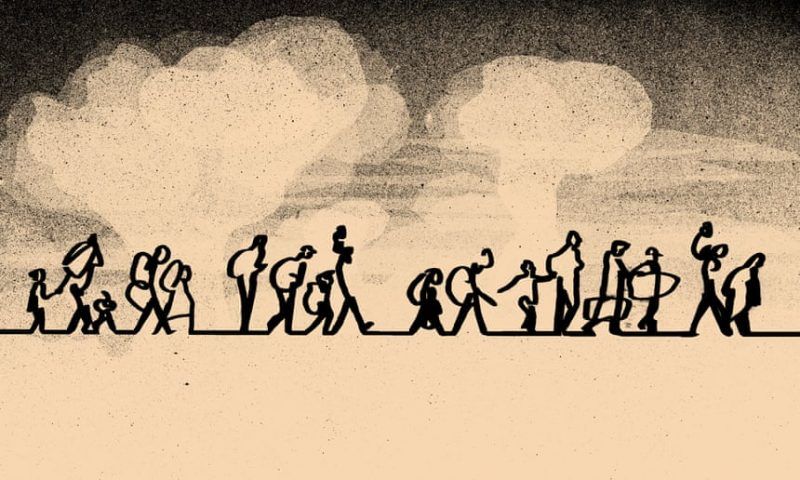
Sudan on the Verge of a Non-Classical Transition: From House of Renewed Wars to House of Sustainable Peace
By Abdullah Rizk Abu Seimazah
It can be assumed that the Khartoum War of 2023 represents a pivotal point between two eras in modern Sudans history: pre-war and post-war. Each era has its own characteristics and dynamics. War is an exceptional event, acting as a violent disruption in the natural course of development, uprooting Sudanese society from its foundations. It is not a casual event like the October 25 coup, which served as a walking stick for a different purpose. Instead, it has created a new reality that deepens the existing national crisis to the extent that partial solutions, reforms, and superficial settlements are no longer suitable to address the new challenges posed by the realities of war.
War, in its finality, as a conception of violence merged with power, seems like the midwife – as a popular saying goes – giving birth to an old society producing a new society.
One of the most noticeable changes is the transitional formula as a pattern and framework for traditional political thinking and a repository of historical experience, programs, tactics, and forces associated with transitional approaches.
In response to the changes brought about by the war, there lies a tendency to adhere to the paths of development established in the previous phase. For the first time since the Turkish-Egyptian invasion of Sudan, the military institution is divided after a long engagement in politics and business, along with the complex conflicts associated with them, leading to confrontations in a devastating war that profoundly signifies the dissolution and disintegration of the state. This threatens the existence of the Sudanese entity, torn apart and distributed among militias and covetous states.
The Khartoum War, with its ramifications across regions and manifestations in all aspects of life in the country, represents a harsh experience that the Sudanese society is undergoing for the first time. This experience deeply affects the society, allowing the conclusion that post-war society is not the same as pre-war society in its composition, aspirations, and visions. As it occurred at the heart of the center, contrary to Sudans peripheral wars, its effects, varying in intensity, have affected everyone and changed them forever. Therefore, it is not expected that all conditions will return to what they were at any point before April 15, 2023, merely by laying down weapons. War, along with its accompanying forced changes, compels everyone to recalibrate their ways of thinking in line with new developments on the ground, yielding results on all fronts: political, economic, social, cultural, and more.
At a time when the war created a new classification of forces based on their position towards the war itself, the question arises about the viability of existing alliances prior to it, as well as the soundness of their political basis, tactics, and programs. The task of removing the effects of war emerges as a priority and a heading for this phase, along with its key issues. This starts with comprehensive reform to fix what the war has destroyed and rebuilding what was shattered in all aspects, within the context of transitioning to civilian rule under democracy. It concludes with uprooting the roots of the war itself, which equates to accomplishing a grand revolution, necessitating revolutionary leadership that draws from the spirit, determination, and strength of the glorious December Revolution. What is now required is not just a transition from a rescue dictatorship to democracy and civilian rule, but rather the construction of a new and different Sudan, with a new program for a non-classical transition, from a house of renewed wars to a house of sustainable peace.

